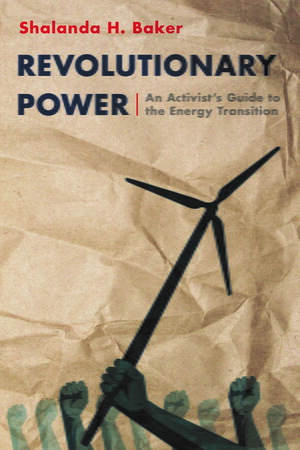Our current energy system does not distribute power equally. Just as power generation has been centralized in our energy system, power and influence have been centralized in our political system. This frequently leaves behind or leaves out the insight and needs of people of color, poor people, and indigenous people in key situations. One needs only to recall how Hurricane Maria left so many US citizens in Puerto Rico without power for nearly a year. How can we rethink our current energy system to enable reliable, locally produced, and locally controlled energy? How can we do this without replicating the current structures of power and control, but in service of humanity to those most vulnerable?

Professor Baker’s book, Revolutionary Power
Hear from Revolutionary Power: An Activist’s Guide to the Energy Transition author Shalanda Baker as she discusses her playbook for the energy transformation. She has crafted a step-by-step analysis of the key energy policy areas that are ripe for intervention. Baker tells the stories of those who have been left behind in our current system and those who are working to be architects of a more just system. She draws from her experience as an energy-justice advocate, a lawyer, and a queer woman of color to inspire activists working to build our new energy system.
Joining her in this conversation is Robert Klee, lecturer at Yale University and former Commissioner of Connecticut’s Department of Energy and Environmental Protection. His recent research looks to sub-national actors (states, cities, companies, and institutions) who are leading on decarbonizing the economy and deploying clean energy in ways that strive towards equity and justice.
We hope you can join us for this conversation among two people keenly aware of the need to create a new energy system that is less pollutant and more equitable, and how they believe this can be done.